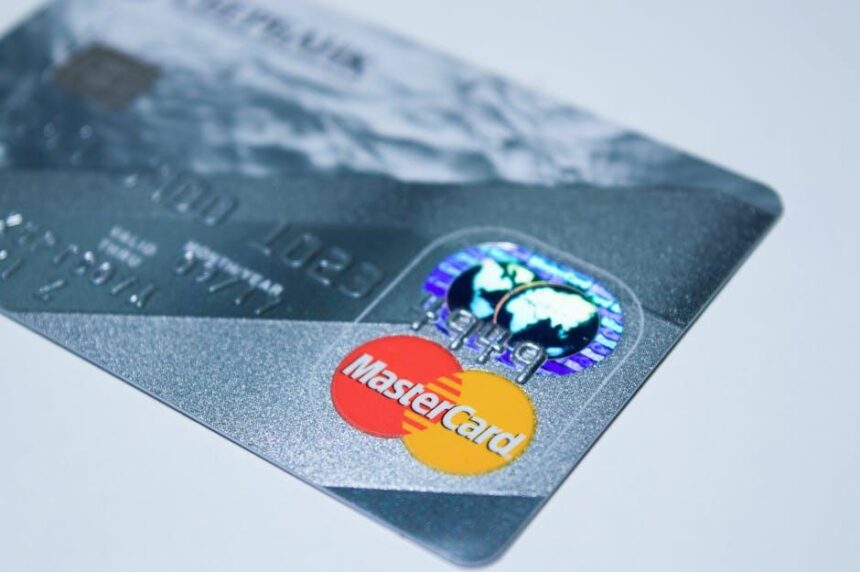When the time comes to part ways with a credit card, the process can often feel daunting. Whether it’s due to a shift in financial priorities or the search for better rewards, knowing how to navigate the cancellation process efficiently can save you time and stress. In this article, we will guide you through the smart steps to cancel your credit card hassle-free, ensuring you make informed decisions without unnecessary complications. From understanding the implications of cancellation to taking the right precautions, mastering these steps will empower you to take control of your finances and move forward with confidence.
Understanding Your Reasons for Cancellation
Before you proceed with canceling your credit card, it’s essential to understand the various reasons that may drive your decision. Identifying your motivations can help ensure that you make a choice that’s right for your financial situation.
- High Annual Fees: If the expense of maintaining the card outweighs its benefits, it might make sense to cancel. Consider whether you utilize the card’s perks enough to justify the fee.
- High Interest Rates: A credit card with a high APR can lead to costly debt. If you find yourself unable to manage payments effectively, it might be time to explore other options.
- Change in Spending Habits: Your financial needs may evolve over time. If you no longer use the card frequently or if it doesn’t align with your current lifestyle, canceling can help simplify your finances.
- Credit Score Management: Sometimes, cancelling a card may be necessary to improve your credit utilization ratio, especially if you have multiple high-limit cards. However, be cautious, as closing accounts can also impact your credit history.
- Customer Service Issues: Poor support from your credit card issuer can be frustrating. If you’ve experienced unhelpful representatives or ongoing service issues, it may warrant switching to a more customer-friendly option.
- Inactivity and Security Concerns: If a card has been inactive for a long time and you’re worried about potential fraud, closing it can help mitigate risks. Regularly reviewed accounts are less vulnerable to misuse.
By clearly understanding your motives, you can make a more informed decision. Reflecting on each point can also help you articulate your reasoning when discussing your cancellation with customer service representatives.

Navigating the Fine Print of Credit Card Terms
Navigating the fine print of your credit card terms is essential for making informed decisions and avoiding surprises. Understanding these details helps you manage your credit effectively and prepares you for a hassle-free cancellation when the time comes.
Here are some key aspects to consider while reviewing your credit card agreements:
- Annual Percentage Rate (APR): This is the interest rate charged on any outstanding balances. Check if it varies for purchases, cash advances, and balance transfers.
- Fees: Be aware of any annual fees, late payment fees, foreign transaction fees, and over-the-limit fees. These can add substantially to your costs.
- Grace Period: Most cards offer a grace period on new purchases. This is the time frame you have to pay off your balance before interest starts accruing.
- Rewards and Benefits: Understand the value of rewards points, cash back percentages, and how to maximize the benefits you earn.
- Credit Limits: Stay informed about your credit limit and how it affects your credit utilization ratio, which is vital for your credit score.
| Term | Description |
|---|---|
| Minimum Payment | The lowest amount you need to pay to keep your account in good standing. |
| Balance Transfer Terms | Conditions related to transferring existing balances from other credit cards, including promotional rates and fees. |
| Dispute Resolution | Details on how to handle unauthorized charges or billing errors. |
| Account Changes | Information on how your terms might change, including notice periods. |
Taking the time to review these terms will empower you to make decisions that align with your financial goals. If you decide to cancel your card, understanding these elements will help you close the account efficiently while minimizing any potential negative impact on your credit score.

Preparing for the Cancellation Process
Before diving into the cancellation process of your credit card, it’s crucial to take a few preparatory steps. This ensures a smooth and hassle-free experience, protecting your credit score and financial interests along the way.
Review Your Account Details:
- Check your current balance and ensure all pending transactions are accounted for.
- Understand any rewards or points that may be lost upon cancellation.
- Know your interest rates and fees, as they can affect your decision.
Evaluate Your Credit Situation:
- Consider how canceling the card will impact your credit utilization ratio.
- Review your credit report to see how this card fits into your overall credit history.
- If you have other cards, assess whether they can cover expenses to minimize impact.
Decide on Timing:
- Choose a time to cancel when you have paid off your balance fully to avoid additional interest.
- Avoid cancellation around significant financial transactions, such as applying for a mortgage.
Gather Necessary Information:
- Keep your card and account number handy-this information will be required during the cancellation process.
- Have your Social Security number available for identity verification.
- Know customer service contact options, including phone numbers and online chat availability.
| Action | Details |
|---|---|
| Pay Off Balance | Make sure to clear any outstanding balance before initiating cancellation. |
| Check Rewards | Redeem any accrued rewards or benefits to avoid losing them. |
| Contact Issuer | Your credit card issuer may have specific methods for cancellation-call, chat, or online. |
Notify Automatic Payments:
Make a list of any automatic charges linked to your card, such as subscriptions or utilities. Update those accounts with a new payment method to prevent disruptions.
Document Everything:
Keep a record of communications with your credit card issuer regarding the cancellation, including dates, times, and names of representatives. This documentation may be essential for resolving any future issues.

Safeguarding Your Financial Health After Closure
Once you’ve made the decision to close a credit card, it’s essential to ensure that your financial health remains intact. Here are key strategies to safeguard your finances after cancellation:
- Check Your Credit Score: Monitor your credit score following the card closure, as closing an account can affect your credit utilization ratio. Tools like Credit Karma or your bank’s credit monitoring services can help.
- Pay Off Remaining Balances: Ensure that any remaining balance on your credit card is paid off. This not only prevents interest from accruing but also alleviates potential damage to your credit score.
- Review Credit Reports: Request a free credit report at AnnualCreditReport.com to confirm that the account is reported correctly as “closed at consumer’s request.” This helps identify any errors that could impact your score.
- Consider Alternative Credit Options: If you lose available credit, it might be beneficial to apply for a secured credit card or a credit builder loan to maintain a healthy credit mix.
- Update Automatic Payments: If any recurring payments were linked to the canceled card, update them to a different payment method promptly to avoid missed payments.
- Evaluate Your Credit Utilization: Keep an eye on how closing a credit card affects your overall credit utilization ratio. Experts recommend keeping it below 30% for a positive impact on your score.
By taking these measures, you can help protect your credit profile and ensure your financial standing remains strong even after the closure of a credit account.

In Summary
As we wrap up our guide on mastering the smart steps to cancel your credit card hassle-free, remember that the journey doesn’t end here. Equipped with the knowledge of what to watch for and how to navigate the cancellation process, you can take control of your financial landscape. Whether it’s about avoiding pesky fees or optimizing your credit health, each step you take puts you on a path to greater financial freedom. Don’t forget to keep an eye on your remaining balances and any reward programs you may want to claim. In the end, thoughtful decision-making will lead to a more secure and stress-free financial future. Happy managing!














